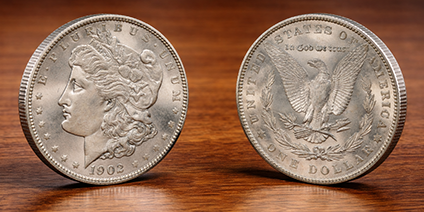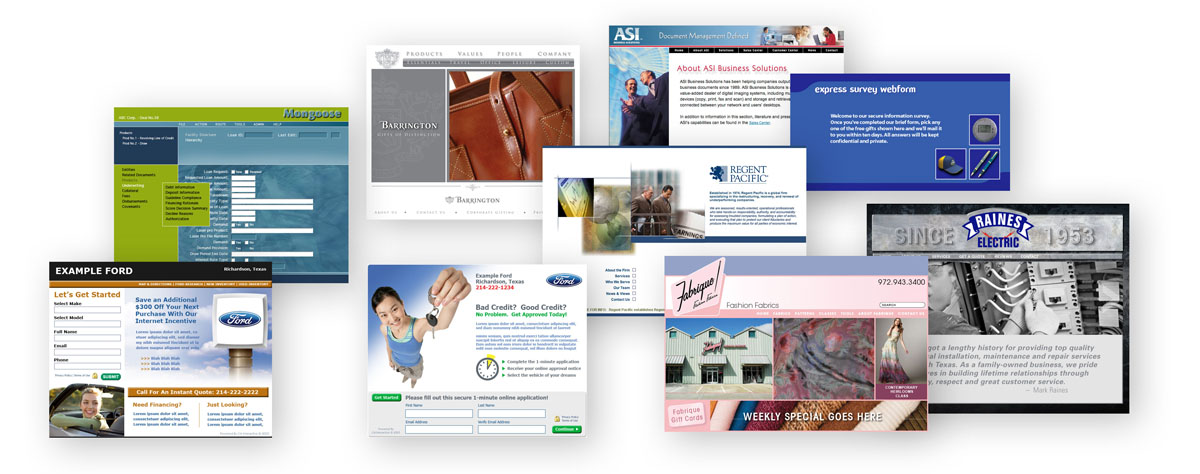What Now
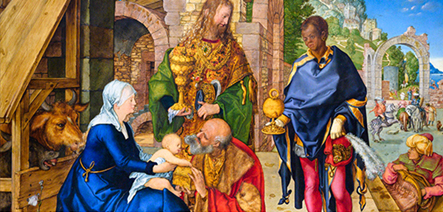
What Now
Christmas is over. Now, what are we supposed to do with that baby in the manger? Stick him back in the attic until next year? Consign him to the conversational taboo list along with religion and politics? Do we even know what we believe about him?
What should we believe? Some say he is the Son of God — the very creator of the universe. Some say he is a myth — a psychic crutch to ward away the boogie man at 4:00AM. Some say he was a good man who taught good things. Some say he was a lunatic who brokered an untenable mindset. They can’t all be right.
Truth Always Trumps Belief
Most of us already harbor some strong opinions on this subject so perhaps the more immediate question is not, “Who do we believe Jesus is?” but rather, “Why do we believe our own claims about Him?” Do we believe He is God because we need relief from the pain of life? Do we reject Him entirely based on our personal distaste for those who claim to revere Him? Are we avoiding the question all together because the answer might impinge on our lifestyle? All of those extremes beget ignorance of the worst kind because they’re each rooted in ego rather than a rational pursuit of truth.
… and the Truth Will Set You Free
Whether we seek to understand the question of who Jesus is or the question of why our relationships, our businesses, our culture are floundering, we need to set aside our emotions and take an objective look at the evidence. Honestly, that last sentence sets forth an impossible task because none of us are capable of true objectivity — our accumulated psychological baggage just gets in the way. The trick is to strive for objectivity and then, ask for unbiased outside critique.
With regards to Jesus, “Socrates taught for 40 years, Plato for 50, Aristotle for 40, and Jesus for only 3. Yet the influence of Christ’s 3-year ministry infinitely transcends the impact left by the combined 130 years of teaching from these men who were among the greatest philosophers of all antiquity.” – Henry G. Bosch.
Regarding the historicity of Jesus, the Roman historian, Cornelius Tacitus (56-120AD) and the Jewish historian Flavius Josephus (37-100AD), both of whom were averse to Christianity, each provide significant extra-biblical documentation of the historical Jesus.
With regards to healing our relationships, we’re gonna need an outside, unbiased perspective. Dr. Harold Duncan is one of the more expensive psycho-therapists in Dallas but well worth every penny you will spend. He won’t provide the answers but he’ll darned-sure help unearth the issues and then he’ll help figure out where and how the answers can be found. The trick is to find someone trustworthy and credible to bounce our ideas off of – someone we’re willing to have challenge us.
There’s also an abundance of good writing on relationships. Start with Robert Hall’s “This Land of Strangers”. If you’ve read it, read it again. Then, move on to Henry Cloud’s “The Power of the Other”. If you’re still thirsty, ask me for more. I’ll give you a list. (Maybe you’d be willing to add something valuable to my reading list in exchange.) But be assured that sticking those relationship issues back in the attic with baby Jesus isn’t the solution.They have a way of sneaking back downstairs and discombobulating everyday life.
With regards to our culture, skip the media. Whether you watch Fox or CNN, they’re both in the business of selling advertising and solidifying audience loyalty. No news network comes close to being objective. So too, the print media. We really should question why our news media spends more money on market research than any other commercial entity apart from the automotive industry. What could demographics possibly have to do with objective reporting of the facts?
Perhaps a good place to start understanding our culture, both the good and the bad, is to read the writings of the founders – what they believed and the society they were seeking to create. Despite their human flaws, they were some pretty intense thinkers. If you’re worried about bias, consider looking at an outsider’s view by reading “Democracy in America”, Vol.1, 1835 & Vol.2 1840 by Alexis de Tocqueville, a French historian, politician, and sociologist who observed first-hand, and documented the American experiment.
With regards to business, there’s no better model than the MasterMind model. If you’re in our group, bring your problem to the next meeting. Lay it out as objectively as you can. We’ll spend an entire meeting making sure we each understand the whole picture and then, we’ll all go away and spend the next two weeks thinking about it before having an intelligent discussion.
If you’re not in a MasterMind group, consider starting one. The goal is inter-personal trust and honest interaction based on divergent but equally viable perspectives. Keep the group small – it’s tough enough letting down your guard with one other human being, let alone four or five. But, like they say, “No pain, no gain” and the dividends are worth the struggle. You might even get to the comfort level of honestly discussing that baby in the manger/attic.
Great Reads, Good Listens
This week we have one repeat and one new recommendation
“Stepping Up”
Second Edition by John Izzo, Ph.D.
Yep, it’s here for a second week in a row. What can I say? it’s the holiday season and playing with my grand kids kept me from completing it as fast as I’d planned. I seriously believe this book would be a great group-read for any MasterMind gathering.
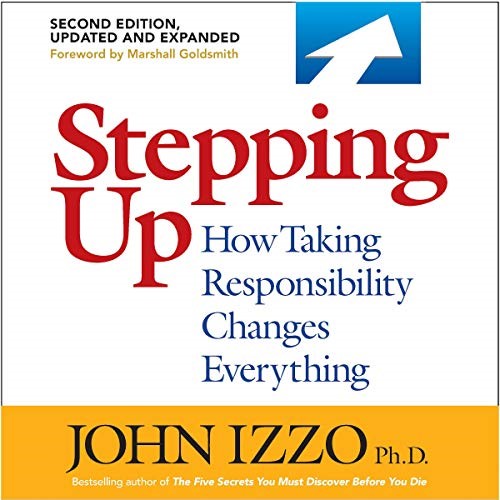
I love it when an author I’m reading recommends another author I enjoy.
John Izzo recommends “Learned Optimism” by Martin Seligman and I whole-heartedly agree.
If you’re thinking this is another Zig Ziglar motivational book, please reset your expectations. This is a college-level textbook that cites some serious research and lays out a persuasive argument for shedding our pessimism.
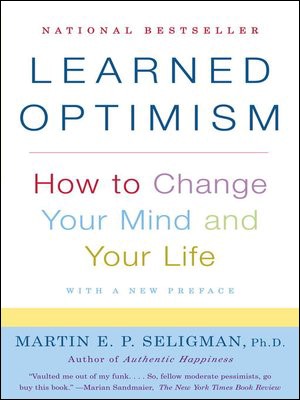
“The more clearly we recognize how deep our commitment to self-protection operates in our relational style and the more courageously we face the ugliness of protecting ourselves rather than loving others, the more we’ll shift our direction.”
— Larry Crabb (another great author)


